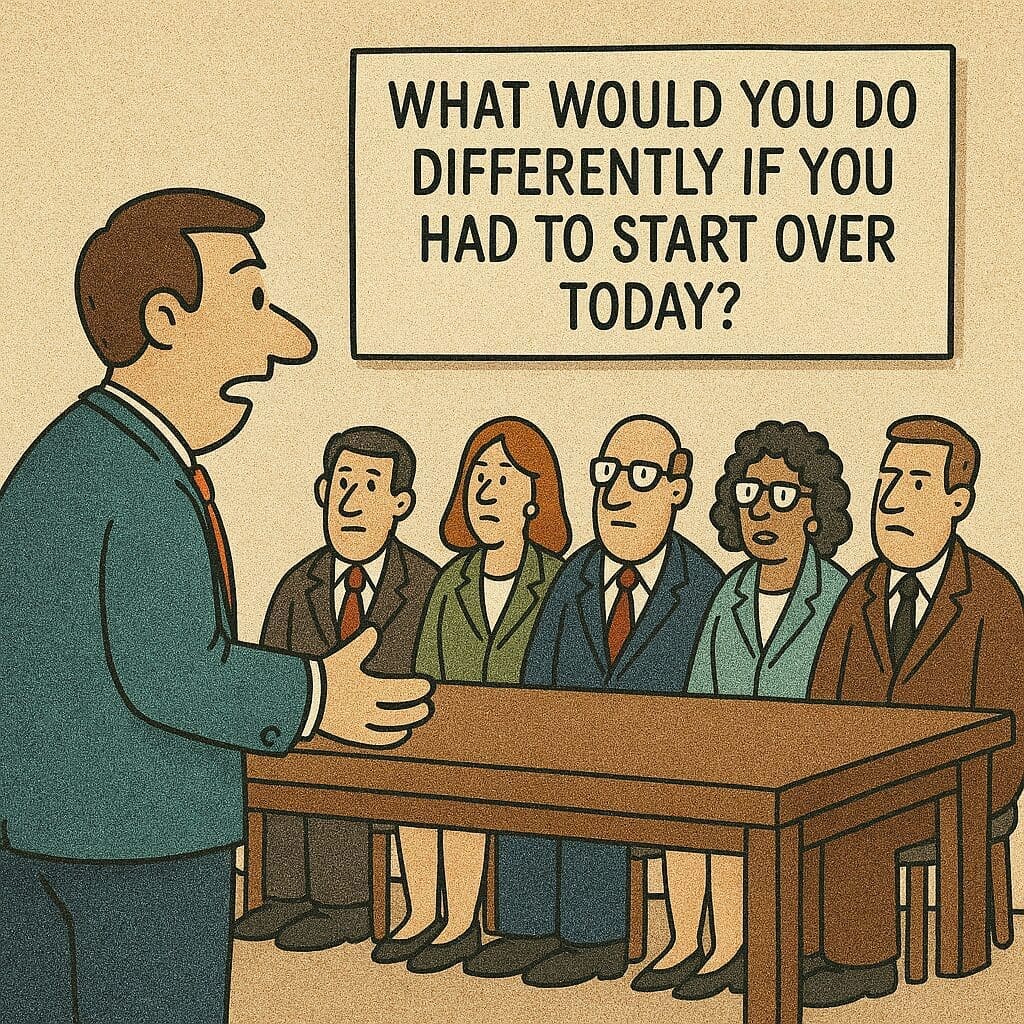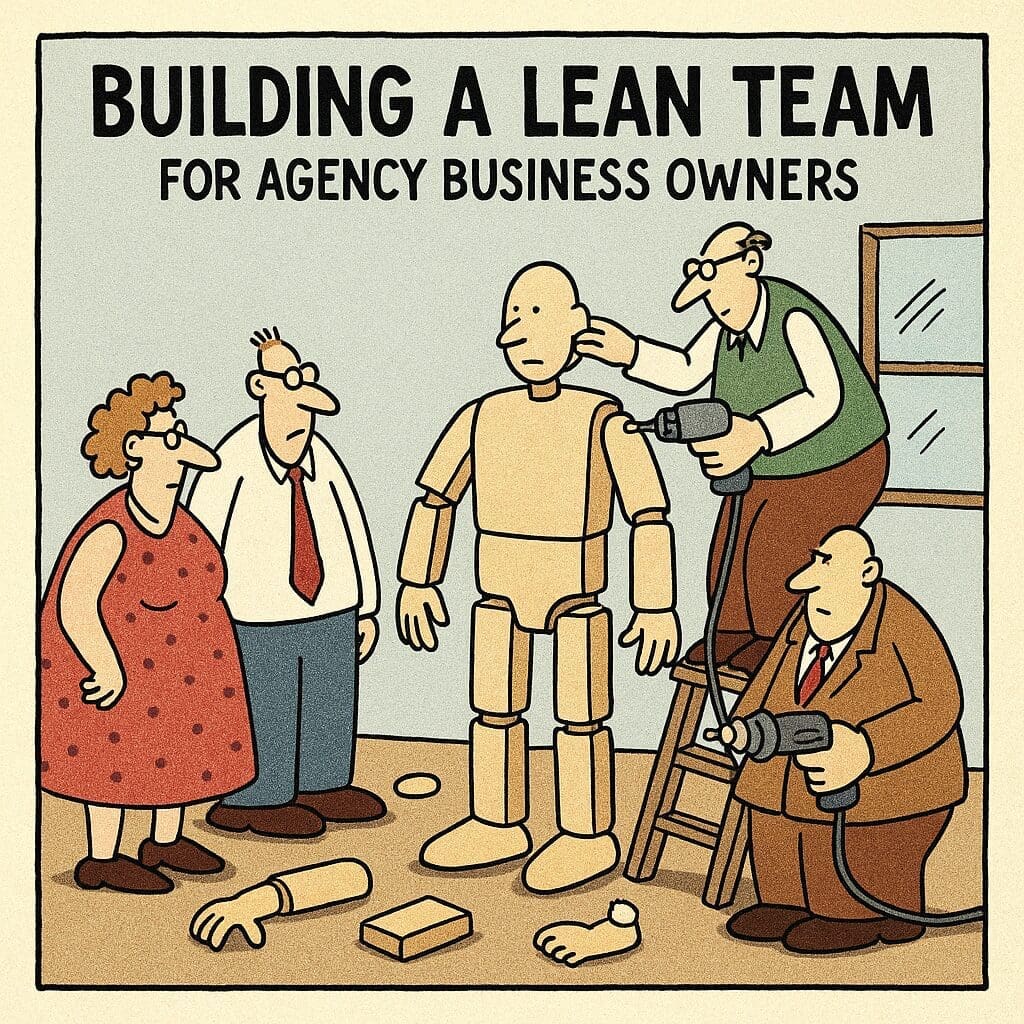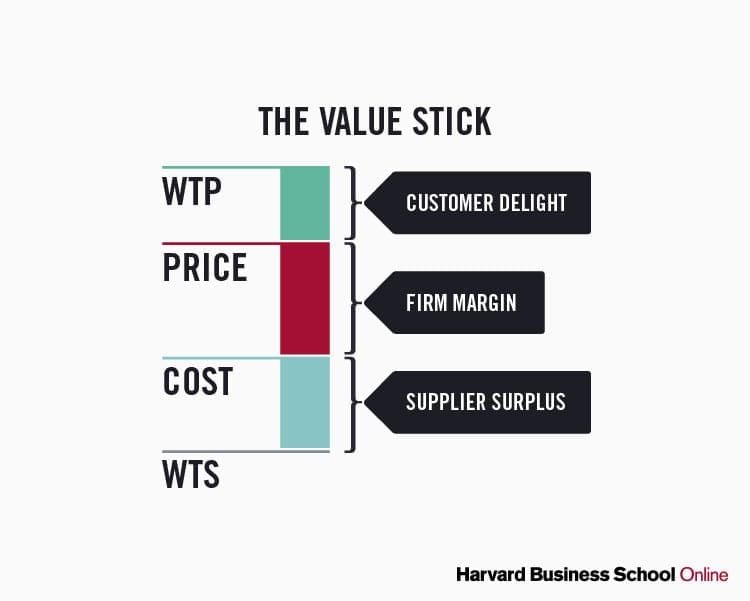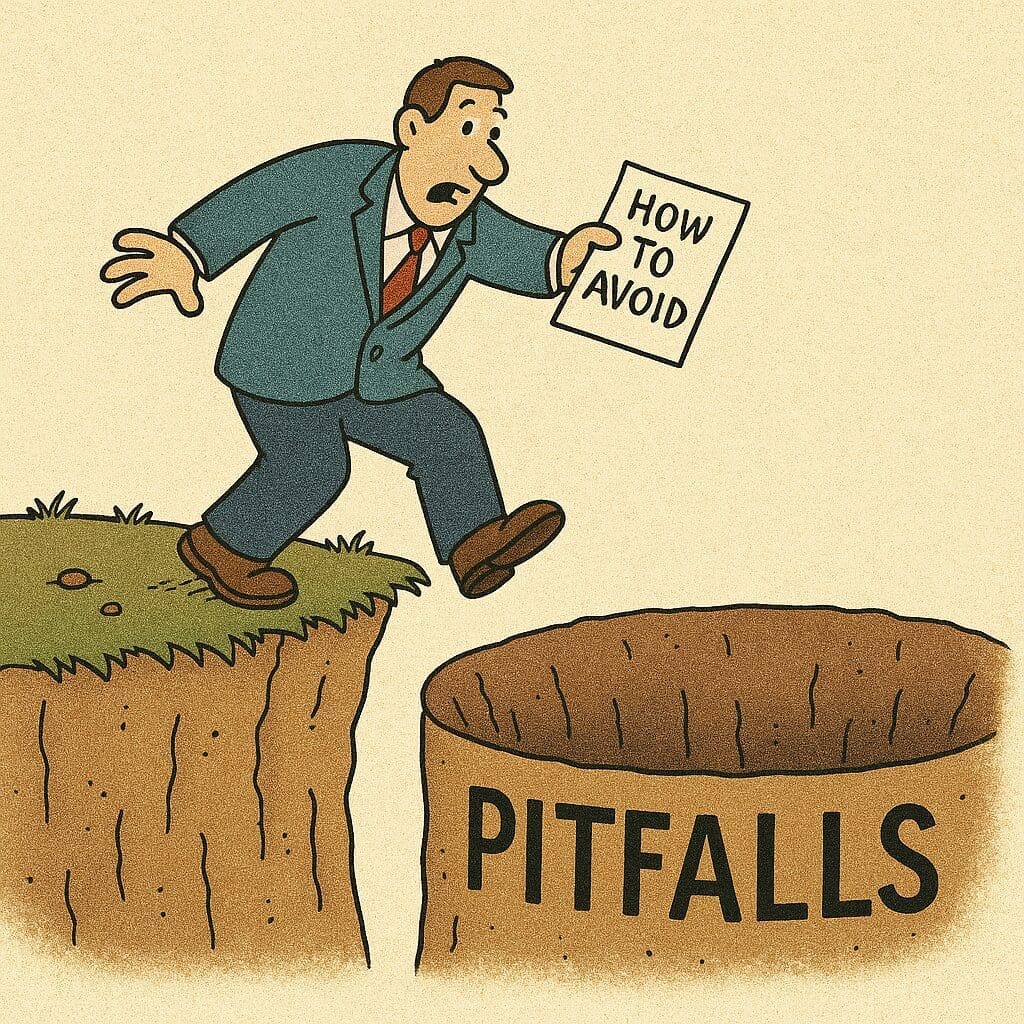
What Would You Do Differently If You Had to Start Over Today?
Imagine sitting down with a room full of successful agency owners, each generating over $1 million annually.
You ask them, “If you had to start your agency from scratch today, what would you do?”
This guide compiles their candid responses, offering you a roadmap to build your own successful agency in 2025.
Their collective wisdom, born from years of experience, trials, and triumphs, provides invaluable insights for aspiring and established agency entrepreneurs.
We’ve distilled countless discussions, articles, and shared experiences from these industry leaders to bring you the essential strategies for launching and scaling a thriving agency.
1. Define Your Niche and Services
The Power of Specialization in a Crowded Market
One of the most echoed pieces of advice from millionaire agency owners is the critical importance of niching down.
Trying to be everything to everyone is a surefire path to becoming nothing to anyone.
Specialization lets you focus your marketing efforts, develop deeper expertise, and command higher prices.
One agency millionaire, with over 40 years in the business, emphasized, his success was built on clever marketing and deep community involvement, which is far easier to achieve within a defined niche.
Think of it this way: if a business has a specific, complex problem, are they more likely to hire a generalist or a specialist who has a proven track record of solving that exact problem?
The answer is almost always the specialist.
A niche allows you to become the go-to expert in a particular industry, service, or for a specific type of client.
6 Examples of Profitable Niches for 2025:
Based on current trends and demands, here are some niches with strong potential:
- AI-Powered Marketing Services: Agencies specializing in leveraging artificial intelligence for tasks like data analysis, content personalization, and ad optimization.
- Sustainability Marketing: As consumers become more eco-conscious, businesses are seeking agencies that can authentically communicate their sustainability efforts.
- E-commerce Growth for Specific Platforms: Focusing on helping businesses thrive on platforms like Shopify, Amazon, or specific B2B e-commerce systems.
- Healthcare Digital Marketing: Navigating the complex regulations and patient privacy concerns in marketing for healthcare providers.
- Fintech Marketing: Specializing in the unique marketing needs of financial technology companies.
- B2B SaaS Content Marketing & SEO: Helping software-as-a-service companies attract and convert business clients through specialized content and search strategies.
Determining Your Service Offerings
Once you have a potential niche (or a few) in mind, the next step is to define your service offerings. This should be a blend of:
- Market Demand: What services are businesses in your chosen niche actively seeking and willing to pay for? Research industry reports, competitor offerings, and listen to conversations in relevant online communities. Many successful agencies are now focusing on performance-based models where they are confident in delivering results.
- Personal Expertise & Passion: What are you and your initial team genuinely good at and passionate about? Starting an agency is hard work; genuine interest in your services will fuel you through challenging times. “Passion keeps you looking for ways to improve what you do.”
- Profitability and Scalability: Which services offer the best profit margins and can be scaled as your agency grows? Avoid offering too many disparate services initially, as this can stretch your resources thin and dilute your expertise. Many agency owners advise against trying to do everything yourself or expanding service offerings too quickly. Stick to your “one thing” and do it exceptionally well.
Initially, it’s wise to offer a focused set of services.
For example, an SEO agency might start by offering on-page optimization and content strategy before expanding into technical SEO or link building.
Build a strong reputation for specific outcomes before broadening your scope.
2. Client Acquisition Strategies

Attracting your first few clients can feel like the biggest hurdle.
Millionaire agency owners consistently point to a multi-faceted approach, emphasizing value and relationship building. In 2025, a robust online presence and targeted outreach are more critical than ever.
Leveraging Digital Channels: SEO, Podcasts, and Social Groups
- Search Engine Optimization (SEO): Your agency’s website is your digital storefront. Optimizing it for relevant keywords is crucial for attracting organic leads. This means targeted keyword research, creating high-value content that addresses potential clients’ pain points, and ensuring your site is technically sound. Focus on content that showcases your expertise in your chosen niche. As successful SEO agencies advise, don’t just talk about rankings; discuss lead volume and revenue impacts.
- Podcasts: Appearing as a guest on podcasts relevant to your niche, or even starting your own, can be a powerful way to build authority and reach a targeted audience. Share valuable insights and case studies to demonstrate your expertise.
- Social Media Groups & Communities: Engage authentically in LinkedIn groups, Facebook communities, or niche forums where your ideal clients spend their time. Don’t just broadcast sales messages. Instead, offer helpful advice, answer questions, and participate in discussions. The goal is to build relationships and become a trusted voice. Social listening is key to understanding community needs and crafting messages that resonate.
Building Your Portfolio: Proof of Concept
A strong portfolio is essential, but what do you do when you’re just starting?
- Pro Bono or Discounted Initial Projects: Consider offering your services at a reduced rate or even for free to a couple of initial clients in exchange for testimonials and case studies. Ensure these are well-defined projects with clear outcomes.
- Personal Projects & Concept Work: Create self-initiated projects that showcase your skills and vision within your niche. For instance, a web design agency could redesign a well-known but outdated local website as a concept piece.
- Clone Projects (with your spin): For web developers or designers, cloning a popular website and adding your unique improvements can be a great portfolio piece, demonstrating technical skill and an eye for enhancement.
- Family and Friends: Offer your services to businesses run by family or friends. These initial projects can provide valuable experience and early portfolio pieces.
The key is to display your best work and versatility. Even personal projects can highlight your growth and initiative.
Effective Cold Outreach and Networking
While inbound marketing is powerful, outbound strategies still have their place, especially in the early days.
- Personalized Cold Outreach: Mass, generic emails are ineffective. Instead, research your prospects thoroughly. Understand their business, identify a specific challenge you can help them with, and tailor your message accordingly. One agency owner suggests auditing a target page for a prospect and sending a wireframe or optimized content as a conversation starter, rather than a generic pitch. Focus on addressing their pain points and offering value upfront.
- Networking (Online and Offline): Attend industry events (virtual and in-person), join local business groups, and actively connect with potential clients and referral partners on LinkedIn. Networking is consistently cited as a crucial activity for agency growth. Focus on building genuine relationships rather than just collecting contacts.
- Referral Partnerships: Build relationships with other agencies or businesses that offer complementary services. They can become a valuable source of referrals.
Client acquisition is an ongoing process.
Consistency and a willingness to provide value at every touchpoint are key. “Selling doesn’t just happen before a new client relationship. It occurs during every interaction.”
3. Building a Lean Team

One of the most significant early mistakes new agency owners make is over-hiring or hiring full-time staff too soon. [Hire proactive global talent for your team]
Millionaire agency owners often emphasize starting lean and scaling your team thoughtfully as revenue and workload increase.
Starting Smart: Part-Time and Freelance Power
Full-time salaries, benefits, and overhead can quickly drain your resources before you’ve established a steady client base.
- Freelancers First: Leveraging freelancers is an incredibly effective strategy for new agencies. Platforms like Upwork, Fiverr, and Toptal offer access to a global talent pool with specialized skills. You can hire for specific projects or tasks without the long-term commitment of a full-time employee.
- Part-Time Staff: As you gain more consistent work, consider hiring part-time employees. This can be a stepping stone to full-time roles and allows you to gauge a person’s fit with your agency culture and work quality before making a larger commitment. Offering internships or part-time positions can be cost-effective and help you identify future top talent.
- The “Two-Pizza Team” Concept: Eric Ries, in “The Startup Way,” describes Amazon’s “two-pizza team” rule – if a team can’t be fed by two pizzas, it’s too big, especially for new initiatives. Starting small fosters better communication and faster bonding.
Hiring Strategies for Remote and Flexible Roles
The rise of remote work has been a boon for agencies, allowing access to talent regardless of geographical location and often at more competitive rates.
- Focus on Skills and Experience: When hiring remotely, prioritize demonstrable skills, a strong portfolio, and excellent communication abilities. Conduct thorough interviews, including practical tests or trial projects.
- Embrace Flexibility: Offering flexible working arrangements can be a significant draw for top talent.
- Cross-Functional Teams: Even a small team should aim for cross-functionality, where members bring diverse skills. Reduce bottlenecks and allow for more holistic problem-solving.
Balancing Quality and Affordability
While keeping costs down is important, never compromise on quality.
Your agency’s reputation will be built on the results you deliver.
- Invest in Key Roles: Identify the core skills critical to your service delivery and be prepared to invest appropriately in talent for these areas. It’s better to have one excellent, well-paid specialist than three mediocre generalists. Experienced agency owners often advise working with people who are smarter than you.
- Develop Strong Onboarding and Processes: Clear processes and thorough onboarding are necessary, especially with remote or freelance teams.
- Build a Strong Culture (Even Remotely): Foster a sense of team and shared purpose. Regular communication, clear expectations, and recognition for good work are vital for retaining talent, whether in-office or remote. As one agency owner noted, making yourself accessible to your employees pays dividends.
Starting lean doesn’t mean thinking small. It means being strategic about your resources, allowing you to grow sustainably and profitably.
4. Operational Efficiency and Tools
Managing projects, communicating with clients, and handling administrative tasks can become overwhelming as your agency grows.
Millionaire agency owners stress the importance of implementing systems and leveraging tools early on to ensure operational efficiency and scalability. Neglecting foundational actions like documenting project management processes can hinder growth.
Implementing Systems for Success
Systems are the backbone of a well-run agency. They ensure consistency, reduce errors, and free up your time to focus on high-value activities.
- Standard Operating Procedures (SOPs): Document your core processes, from client onboarding to project delivery and reporting. SOPs ensure that tasks are performed consistently, regardless of who is doing them. If you ask three people how a standard task is done and get three different answers, you have a process issue.
- Client Onboarding Workflow: Develop a standardized process for welcoming new clients. This should include a kickoff meeting, information gathering (e.g., through a client onboarding questionnaire – Source 29.1), and setting clear expectations.
- Project Management Framework: Choose a project management methodology (e.g., Agile, Waterfall, or a hybrid) that suits your agency’s services and work style.
Recommended Tools for Small Agencies
There are a lot of tools available, and it’s easy to get overwhelmed.
Start with a few key tools that address your most pressing needs:
- Project Management:
- Trello, Asana, ClickUp, Monday.com: These tools help you organize tasks, track deadlines, collaborate with team members, and manage project workflows visually. Many offer free or affordable plans for small teams.
- Trello, Asana, ClickUp, Monday.com: These tools help you organize tasks, track deadlines, collaborate with team members, and manage project workflows visually. Many offer free or affordable plans for small teams.
- Communication:
- Slack: Excellent for internal team communication, allowing for quick messaging, file sharing, and organized conversations in channels.
- Zoom or Google Meet: Essential for video conferencing with clients and remote team members.
- Google Workspace: Provides email, cloud storage (Drive), shared calendars, and collaborative document editing (Docs, Sheets, Slides), offering a familiar all-in-one solution.
- Client Relationship Management (CRM):
- HubSpot CRM (Free Tier), Zoho CRM: Helps you manage leads, track client interactions, and nurture relationships. Some marketing automation tools also include CRM functionalities.
- HubSpot CRM (Free Tier), Zoho CRM: Helps you manage leads, track client interactions, and nurture relationships. Some marketing automation tools also include CRM functionalities.
- Automation:
- Zapier: Allows you to connect different apps and automate repetitive tasks without needing to code. For example, automatically adding new email subscribers to a spreadsheet or creating a task in your project management tool when a client signs a contract.
- Social Media Schedulers (e.g., Buffer, Hootsuite): Automate the posting of social media content for your agency and your clients.
- Email Marketing Platforms (e.g., Mailchimp, ActiveCampaign): Automate email sequences for lead nurturing and client communication.
Automating Repetitive Tasks
Identify tasks that are performed regularly and consume significant time.
These are prime candidates for automation. This could include:
- Sending follow-up emails.
- Generating basic reports.
- Posting social media updates.
- Onboarding new email subscribers.
5. Pricing and Profitability
Setting the right prices for your services is one of the most critical decisions you’ll make as an agency owner.
Underpricing is a common mistake for new businesses and a sure-fire way to run out of cash.
Millionaire agency owners emphasize pricing based on value, not just time, and continually look for ways to improve profit margins.
Setting Competitive Yet Sustainable Pricing Models
Several pricing models are common in the agency world:
- Hourly Rate: Charging clients for the actual hours worked. Simple, but it can lead to clients focusing on time rather than results.
- Project-Based Pricing: A fixed fee for a defined scope of work. Provides cost certainty for the client and predictability for the agency, but requires accurate scoping to be profitable.
- Retainer Agreements: Clients pay a recurring monthly fee for a set amount of work or ongoing access to your services.
- Points-Based Pricing: Assigning points to different deliverables or tasks based on value creation, rather than hourly estimates. Clients purchase a certain number of points per month.
Understanding Value-Based Pricing

Many successful agency owners advocate for value-based pricing.
This model sets fees based on the perceived or actual value your services deliver to the client’s business, rather than just the cost of your inputs (like hours worked).
- Focus on Outcomes: Instead of selling hours, sell results. For example, instead of “10 hours of SEO work,” sell “increased organic traffic and lead generation.”
- Quantify Your Impact: Whenever possible, tie your services to measurable business outcomes like increased revenue, reduced costs, or improved market share. This helps justify higher prices. One agency owner aiming to reboot their agency plans to increase their price point and focus on quality work, potentially moving to a performance-based model.
- Communicate Your Unique Value Proposition: What makes your agency different and better? Is it your specialized expertise, proprietary processes, or exceptional track record? Clearly articulate this value to clients.
Value-based pricing allows you to decouple your revenue from your time, leading to higher profitability as you become more efficient and effective.
It’s about charging what you’re worth, based on the impact you create.
Strategies to Increase Profit Margins Over Time
Profitability isn’t just about revenue; it’s about the difference between your revenue and your costs.
- Increase Prices Strategically: As you gain experience, build a stronger portfolio, and demonstrate results, don’t be afraid to raise your prices, especially for new clients.
- Improve Efficiency: Continuously refine your processes and leverage automation to reduce the time and cost of delivering services. Streamlining repetitive tasks saves administrative expenses and billable hours.
- Upsell and Cross-Sell: Identify opportunities to offer additional valuable services to existing, satisfied clients. It’s often easier to sell more to happy clients than to acquire new ones.
- Manage Scope Creep: Clearly define project scopes in your contracts and have a process for addressing requests that fall outside that scope (potentially as new, billable work).
- Focus on High-Margin Services: Analyze the profitability of your different services and prioritize those that offer the best margins.
- Control Operating Costs: Regularly review your expenses and identify areas where you can save money without sacrificing quality.
You build a financially healthy and sustainable agency by thoughtfully setting your prices and actively managing your profitability. Over-deliver but never under-value.
6. Common Pitfalls and How to Avoid Them

The journey of starting and scaling an agency is fraught with potential pitfalls.
Learning from the mistakes and experiences of seasoned agency owners can help you navigate these challenges more effectively.
Lessons Learned from Experienced Agency Owners:
- Not Niching Down: As discussed earlier, trying to be a jack-of-all-trades often leads to being a master of none. This dilutes marketing efforts and makes it hard to stand out.
- Avoidance: Define a clear niche early on and focus on becoming the expert in that area.
- Avoidance: Define a clear niche early on and focus on becoming the expert in that area.
- Underpricing Services: Fear of losing potential clients can lead to setting prices too low, which devalues your work and makes profitability a struggle.
- Avoidance: Research industry benchmarks and adopt value-based pricing. Be confident in the results you deliver.
- Avoidance: Research industry benchmarks and adopt value-based pricing. Be confident in the results you deliver.
- Hiring Too Quickly or Poorly: Bringing on full-time staff before you have the consistent revenue to support them, or hiring without a rigorous vetting process, can be costly.
- Avoidance: Start lean with freelancers or part-time help. Implement a thorough hiring process focusing on skills, cultural fit, and proven experience.
- Avoidance: Start lean with freelancers or part-time help. Implement a thorough hiring process focusing on skills, cultural fit, and proven experience.
- Neglecting Your Own Marketing: Agency owners often get so busy working in the business (client work) that they forget to work on the business (their own marketing and lead generation).
- Avoidance: Dedicate consistent time and resources to your agency’s marketing efforts, just as you would for a client.
- Avoidance: Dedicate consistent time and resources to your agency’s marketing efforts, just as you would for a client.
- Poor Cash Flow Management: Running out of cash is a primary reason startups fail. This can be due to underpricing, slow-paying clients, or unexpected expenses.
- Avoidance: Create a detailed budget, monitor cash flow diligently, invoice promptly, and consider retainers for predictable income. Open a dedicated business bank account.
- Avoidance: Create a detailed budget, monitor cash flow diligently, invoice promptly, and consider retainers for predictable income. Open a dedicated business bank account.
- Lack of Systems and Processes: Without clear systems, scaling becomes chaotic, quality can suffer, and inefficiencies creep in.
- Avoidance: Document key processes (SOPs) early on for everything from client onboarding to service delivery.
Recognizing Red Flags in Client Relationships
Not all clients are good clients. Problem clients can drain your time, energy, and profits.
- Unrealistic Expectations: Clients who want massive results for a minimal budget or on an impossible timeline.
- Avoidance: Clearly define scope, deliverables, and timelines upfront. Educate clients on realistic outcomes. Learn to say “no” to projects that aren’t a good fit.
- Avoidance: Clearly define scope, deliverables, and timelines upfront. Educate clients on realistic outcomes. Learn to say “no” to projects that aren’t a good fit.
- Scope Creep: Clients who continually ask for more work beyond the original agreement without additional compensation.
- Avoidance: Have a clear contract and a process for change orders that involve additional fees.
- Avoidance: Have a clear contract and a process for change orders that involve additional fees.
- Poor Communication or Disrespect: Clients who are consistently unresponsive, unclear in their feedback, or disrespectful to your team.
- Avoidance: Prioritize working with clients who value partnership and communication. Don’t be afraid to “fire” a truly toxic client.
- Avoidance: Prioritize working with clients who value partnership and communication. Don’t be afraid to “fire” a truly toxic client.
- Consistent Late Payments: This directly impacts your cash flow and signals a lack of respect for your terms.
- Avoidance: Have clear payment terms in your contract and follow up on overdue invoices promptly.
Maintaining Work-Life Balance While Scaling
Agency ownership can be all-consuming, especially in the growth phase. Burnout is a real risk.
- Set Boundaries: Define your working hours and stick to them as much as possible. Encourage your team to do the same.
- Delegate Effectively: You can’t do everything yourself. Trust your team and delegate tasks appropriately.
- Prioritize ruthlessly: Focus on the activities that drive the most significant results for your agency and your clients.
- Schedule Downtime: Make time for rest, hobbies, and personal relationships.
- Build a Support System: Connect with other agency owners or entrepreneurs who understand the challenges you face.
7. Your Next Steps
Starting and scaling a million-dollar agency is a marathon, not a sprint.
The insights shared by successful agency owners underscore a common theme: success is built on a foundation of strategic focus, consistent effort, and a commitment to delivering real value.
Recap of Key Takeaways:
- Niche Down: Specialize to stand out and attract your ideal clients.
- Strategic Client Acquisition: Combine digital marketing, valuable content, and targeted outreach.
- Build Lean: Start with a flexible team and scale thoughtfully.
- Systematize Operations: Implement processes and tools for efficiency from day one.
- Price for Value: Understand your worth and price your services based on the results you deliver, not just your time.
- Anticipate Pitfalls: Learn from common mistakes to navigate challenges more effectively.
The journey ahead will have its ups and downs.
There will be moments of doubt and significant wins. The key is to take consistent, informed action.
Use this guide as your roadmap, but remember to adapt its principles to your unique circumstances and vision.
Encouragement to Take Action:
The difference between a dream and reality is action.
Don’t wait for the “perfect” moment or to have all the answers.
Start where you are, with what you have.
Implement one strategy from this guide today. Then another tomorrow.
Continuous learning and iterative improvement are hallmarks of successful entrepreneurs.
Resources for Further Learning and Support:
- Industry Blogs & Publications: Stay updated with resources like Search Engine Journal, Content Marketing Institute, Adweek, and niche-specific blogs.
- Online Communities: Join groups on LinkedIn, Facebook, or forums like Reddit’s r/agency to connect with peers, ask questions, and share experiences.
- Business Mentors & Coaches: Consider seeking guidance from experienced mentors or business coaches who can provide personalized advice.
- Books: Explore classic business and marketing books for timeless principles.
You have the insights. Now, go build that agency.
The market awaits your unique contribution.